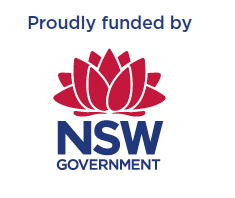Background to this Project
CCA has received funding from the NSW Department of Education to strengthen the NSW adult and community education (ACE) sector by providing leadership, governance support and guidance to the Chairs of its members’ Boards of Directors.
Corporate governance and executive leadership are top priority areas for proper strategic and operational functioning of NSW ACE providers. CCA’s long experience shows that proper governance – including leadership from the Chair of the member Board of Directors – is second only to funding in relation to ACE provider success. This project directly addresses this priority, building on previous CCA projects and ongoing research.
The Importance and the role of the Chair: The Chair of a not-for-profit organisation “is uniquely placed to contribute to the strategic direction of an organisation that does important work…. The organisational buck always stops with the Chair. The Chair is the person who has to balance the difficult issues, manage strained relationships, monitor unsatisfactory performance, and put in place strategies to resolve complaints. These issues can be difficult to juggle… The Chair is one of the most important officers in any not-for-profit organisation. In short, the primary function of the Chair is to ensure that the board operates in a manner that is conducive to the achievement of the strategic outcomes and purposes of the organisation. This requires the Chair to play an active role in promoting a positive board culture… to communicate, both internally and externally, the culture and philosophy of the organisation,” and provide supervision to the Chief Executive Officer. (Source: JFM Law)
Risks to ACE providers: CCA believes lack of professional development for its member Boards of Directors is a significant risk to the long-term functioning of the ACE sector, because if/when an ACE provider’s Board of Directors “self-destructs” through lack of leadership (generally through the Chair), the whole organisation is at significant risk of failure. If the situation gets that far, there is little CCA or governments can do to “save” it from collapse. But just avoiding catastrophic situations is not enough: leadership of an independent ACE provider involves hundreds of decisions monthly, and a style of governance and leadership that is accurate, timely, communicative and alert to best practice. As most ACE providers are small to medium sized, very few of them have the resources to invest in professional development for their Chairs and Boards of Directors. This project intends to start to meet that need, as well as to indicate future directions for ACE provider board professional development activities.
Previous CCA projects include:
- 22 x CCA professionally produced governance and executive leadership audio podcasts
- 3x CEO-Board Chair training sessions
In summary, this project intends to strengthen, upskill and broaden the capabilities of ACE provider Chairs of Boards of Directors, so that they can undertake their leadership roles with best practice, professionalism, ethics, authority, strategic intent, and ensure their respective CEOs are supported and led in the best possible manner, and their Boards led appropriately.





